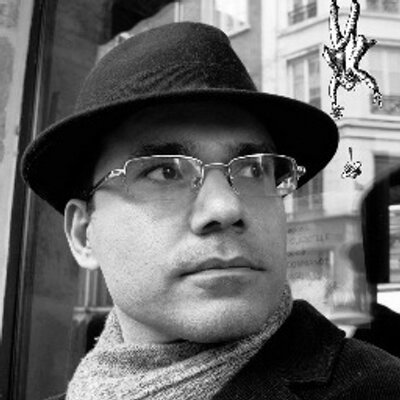
Last Update
July 13, 2020
Organisation
Unknown
Gender
Male
Ethnic Group
Unknown
Religoius Group
Muslim
Province
Tehran
Occupation
Artist
Sentence
No sentence
Status
In exile
Institution investigating
Judiciary
Charges
Unknown
Date of Birth
1973
Place of Birth
Tehran
Mana Neyestani In exile
Mana Neyestani, who currently lives in Paris, is one of Iran’s most well-known and active cartoonists. In 2020 he won the International Award for Courage from the Cartoonists Rights Network.
Over recent years, Neystani’s work has been widely published in reformist journals and publications, and since leaving Iran in 2006 he has worked with a number of international media outlets.
On 12 May of that year, the publication of one of his cartoons, in the weekly journal Iran Jomeh, a weekend supplement to Iran Newspaper, caused considerable controversy. Some claimed the cartoon was derogatory of Iran’s Turkic populations and both Neyestani and the supplmenent’s editor Mehrdad Ghasemfar were arrested.
Neyestani’s cartoon was published under the title “How to stop the cockroaches from making us into cockroaches?”
The article also contained several other cartoons in which a child tries to speak to a cockroach in the “language of cockroaches.” But another character, a beetle, does not understand the cockroache’s words and replies with the Azerbaijani-Turkish word “Namana?” meaning “What?”.
Following extensive demonstrations in Tabriz and other Turkic-speaking cities in Iran, the Press Supervisory Board convened an emergency meeting at which it decided to temporarily halt the publication of Iran Jomeh and to refer the case to the Prosecutor’s Office. On May 21, 2006, the newspaper issued an official public apology and fired Mana Neyestani.
A spokesperson for the judiciary also announced that they had issued an arrest warrant for both Neyestani and the editor Ghasemfar.
Text published alongside the cartoon, under the title ‘Dialogue,’ ran as follows: “The problem is that a cockroach cannot understand human language [i.e. a rational argument]. Cockroach grammar is even so difficult that eighty percent of cockroaches themselves do not know the language or prefer to speak other languages. How could you possibly understand the languages of cockroaches when they themselves do not even understand their own language?”
Mana Neyestani said of the cartoon that “The use of the words ‘sanana’ and ‘Namana’ in the dialect of the cockroaches are terms that are used in Persian as slang words. This point shows that the Turkish language has an influence on Persian language. The second point is that on the same page, or on page 20 of the newspaper, there are other cartoons in which the frogs and cockroaches speak in a thick Tehrani accent, but this does not suggest that Tehranis themselves are cockroaches.”
The ban on Iran Jomeh lasted five months, after which it resumed publication with a change of staff and management. Gholamhossein Eslami-Afar, the newspaper’s editor-in-chief, was acquitted of the accusations of “causing discord between sections of society” and “insulting Turkic-speaking populations.” He said in court: “In other cartoons, the main characters of the stories and satires that we publish spoke in other common languages of the country, including Persian. The cartoonist had no intention of insulting Turkic speakers.”
After spending 90 days under temporary arrest, Neyestani was granted prison leave during which he left Iran. After living in Malaysia, he traveled to France and currently lives in Paris. When Neyestani received the International Award for Courage in 2010, he used his acceptance speech to apologise to his Azerbaijani-Turkic compatriots for the controversy and any insult that he may have caused with his cartoon.
Neyestani said the award should be considered “to belong to all Iranian ethnic groups including Turks, Kurds, Luris, Baluchis, and all other ethnic minorities of Iran who are fighting to defend their rights and who have suffering because of it.”
In an interview with Deutsche Welle, Neyestani spoke about receiving the International Award for Courage Award, and about his acceptance speech.
“The reason that I was given this award was that I was imprisoned and threatened for three months,” Neyestani told Deutsche Welle. “The reason I was imprisoned and threatened was because of the cartoon published in the Iran Jomeh, which caused so much misunderstanding and controversy. I felt that it was a good opportunity to both point to that fact and emphasize several times that there was no malice or intention behind it, and that if anyone was upset by it, I would be able to apologise about it a few times from an international public position.”